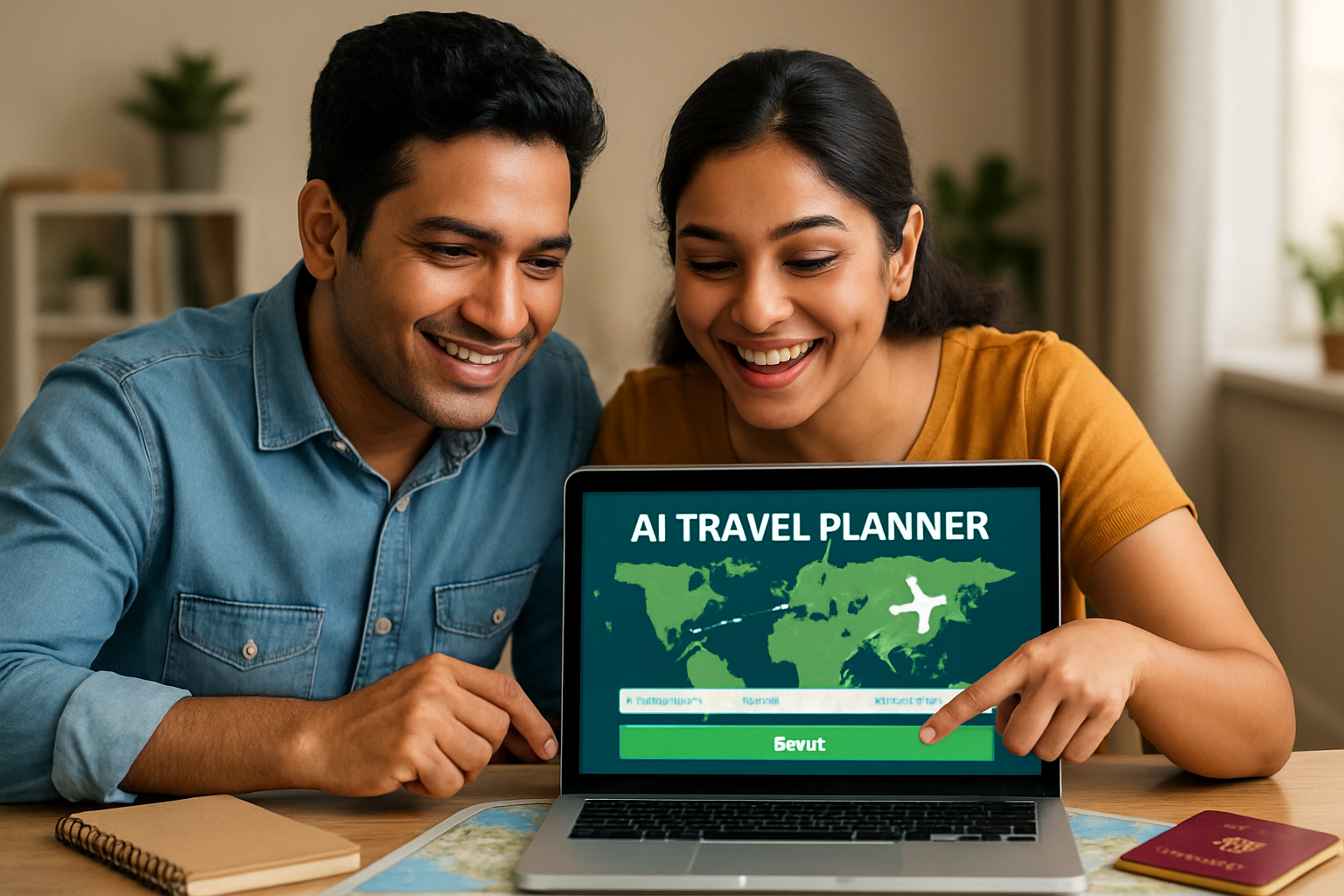Quick Take
- 99% of Indian travelers excited about AI technology vs global average
- Only 16% fully trust AI systems, creating significant market opportunity
- 74% represent AI Enthusiasts (46%) and Advocates (28%) segments
- Translation services (55%) and local suggestions (52%) show highest demand
- Asia-Pacific leads global AI adoption with Indian businesses have a home market advantage
A new Booking.com Global AI Sentiment Report shows Indian travelers lead the world in AI enthusiasm, with 99% expressing excitement about the technology. However, only 16% say they fully trust AI systems – a gap that creates major opportunities for travel tech startups in what’s becoming the world’s fastest-growing travel market.
Indian consumers are already weaving AI into their travel planning routines. More than half use AI tools when researching destinations, while 44% rely on AI recommendations to discover local experiences. The data shows 42% of travelers want AI-powered restaurant suggestions, pointing to clear business demand in the travel technology sector.
“Generative AI represents one of the most significant technological shifts of our era,” says Santosh Kumar, Regional Manager, South Asia at Booking.com. “In India, people are not just curious — they’re actively using AI to shape better travel experiences. The opportunity is enormous, but so is our responsibility to guide travellers with trust and transparency.”
Trust Gap Creates Competitive Opening
The stark difference between enthusiasm and trust levels presents strategic advantages for companies that can address consumer concerns effectively. The research reveals only 12% feel comfortable letting AI make travel decisions independently. Meanwhile, 32% always fact-check AI results and 38% say AI lacks the human touch they want.
Interestingly, AI assistants now rank higher than traditional influencers as trusted sources. About 45% trust AI assistants more than travel bloggers, while social media influencers earn trust from just 31% of respondents. This shift indicates changing authority patterns in how people make travel decisions.
Market Segments Show Clear Targeting Opportunities
The consumer breakdown reveals distinct opportunities for tailored business approaches. AI Enthusiasts make up 46% of the market, with AI Advocates representing another 28% of consumers. Combined, these groups total 74% market penetration opportunity for companies building AI-first solutions.
Smaller segments include 10% AI Detractors and 5% AI Cautious users, with only 4% classified as AI Skeptics. This distribution clearly favors businesses developing AI-first solutions that target startup opportunities in travel technology.
Implementation Areas Show Revenue Potential
In-trip AI usage demonstrates immediate business opportunities across several categories. Translation services attract 55% of travelers, local suggestions appeal to 52% of users, and transport navigation draws interest from 41%. These use cases suggest clear product roadmaps for companies in the travel technology space.
Post-trip applications also show strong demand, with 51% of travelers interested in AI photo editing features. Companies can start with high-demand, low-risk AI features like translation and photo editing that require minimal trust while building user confidence for more complex features.
Strategic Implementation Needs Hybrid Approaches
Despite the high enthusiasm levels, 92% express concerns about AI’s impersonal nature and verification needs. Companies must balance automation with human interaction, as pure AI solutions may fail despite having strong technical capabilities.
Successful AI travel products need built-in verification systems and human validation features to build consumer trust. Transparency becomes the key competitive differentiator, with hybrid approaches showing better market acceptance than fully automated solutions.
Regional Advantage Opens Indian Expansion
Asia-Pacific leads AI adoption globally, while North America and Europe show more skepticism toward the technology. Indian businesses have a home market advantage, though global expansion strategies should account for these regional differences.
The Indian travel AI market presents clear opportunities where high enthusiasm combined with trust gaps creates space for innovative solutions. Companies that build trustworthy AI with human oversight will capture significant market share by addressing consumer concerns while delivering AI benefits.






